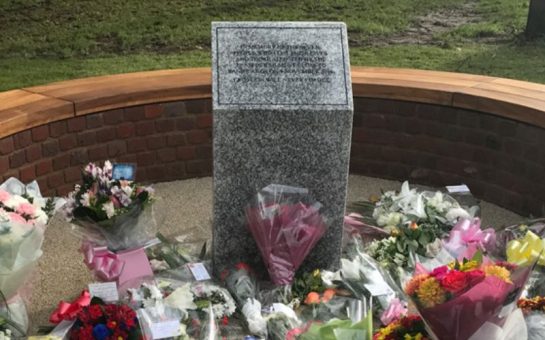Taking the reins of Croydon Council during its worst ever financial crisis is the challenge that its new leader, Hamida Ali has faced.
Having been elected as a councillor in 2014, Ali took office last October at the height of the authority’s collapse, following the controversial departure of her predecessor, Tony Newman.
With a background in equality and diversity practises in the public sector spanning over 20-years, the former cabinet member will play a central role as the council seeks to address its significant budget shortfall.
In November last year, Croydon was forced to issue a section 114 notice after revealing a £66million hole in its overall budget, and all but non-essential spending was suspended.
That notice was formally ended in March, after the council confirmed it could balance its 2021/22 budget, and Ali insisted that the council is able to balance ensuring residents remain supported while it continues to pursue opportunities for savings.
She said: “I want to reassure Croydon residents that we are working incredibly hard to preserve and to protect the important support that the council has been providing and will continue to provide.
“We will always be looking for every single opportunity that generates a saving and that doesn’t affect the experience of our residents.
“It won’t always be possible and we are by no means alone. Councils in other parts of London have had to deal with really difficult things.
“Whether that is looking at their library services and reducing the number of libraries they provide, or whether it is looking at other services, there is some reality about the settlement for local government around what you can provide with what money is available.
“I’m very mindful of the views I’ve heard from residents about how it feels to either receive services or hear from us, and so I want to change that, I want to improve that.
“I want that relationship with our residents to be even better and that will be something that will be a focus for us as we look ahead.
“We want to build opportunities for our communities in this context of recovery that the nation and the city at large will be entering and that is something we want to be a full-part of so that residents can unleash their potential.
“We want the council to be playing our part in making Croydon the best place in London.”

Credit: Croydon Council
Earlier in the year, the Government approved the organisation’s application to use capital funds for revenue purposes as part of efforts to fulfil its Renewal Plan, enabling it to set an in-year budget.
Minister of state for regional growth and local government, Luke Hall, wrote to the council to confirm that it would allow total borrowing of £120million, with £70million available over the 2020-21 financial year.
A member of the council’s Local Strategic Partnership Committee, Ali explained the motivation for standing as leader stemmed from the need for equality and social justice, factors that she describes as the reason why she is a Labour councillor.
She said: “It has boosted my own sense of public services and the importance that at such a challenging time we would need strong, good, inclusive leadership to help address our situation, and I wanted to be part of that solution.
“I wanted to put myself forward to be part of that rather than stepping away from it which speaks to the contribution I’ve wanted to make.
“It has been a really challenging time for the council overall, as well as for those of us as councillors at the point at which this came to a head.”
Ali’s comments come amid findings from the council’s own auditors, which described a culture of “collective corporate blindness to both the seriousness of the financial position and the urgency with which actions needed to be taken”.
Issued by Grant Thornton, the report in the public interest highlighted a number of areas in which the local authority had failed to control overspends, and said the Covid-19 pandemic exposed its fragile financial position, especially in children and adult social care.
In October, Croydon Council was forced to apologise for exceeding the children’s and adult’s social care budget by £39.2million, with an overspend of £8.7million on unaccompanied asylum-seeking children.
Serving as the cabinet member for communities, safety and justice, Ali helped to vote through budgets that would come to be associated with poor governance and insufficient challenge from council members.
She said: “I think the auditors were right when you look at their very clear, plain speaking report which has been a real focus for us over the last six months.
“It raises two fundamental things: financial resilience – which we didn’t have, meaning that we were perhaps less able than the rest of local government to survive this period without going close to the brink – and the way in which we were working and how we were going about decisions.
“I think there were a number of factors that contributed to this and I think that all of us in the chamber, it’s fair to say, have looked long and hard to say ‘what could I have done differently’, and that might have stopped this from happening.
“It’s important to remember that the report highlighted where members made mistakes and also where offices made mistakes. The collective corporate blindness doesn’t speak to one set of actors in this, it speaks to the whole landscape which I think is an important point to make.”
Last November, responding to the scale of the challenges facing it, Croydon Council published details of its financial recovery plans, including improvements to governance and leadership practises.
According to the local authority, the Croydon Renewal Plan would enable it to become a financially sustainable council by 2024, and includes proposals to alter the way services are delivered.
“When I think of all the reports we’ve been seeking to pay attention to and respond to – whether it’s the Government’s rapid review report, or whether it’s the finance review work that’s been done internally – there’s over 400 recommendations that the Renewal Plan seeks to respond to,” Ali said.
Improvement programmes will be looking at whether councillors are properly equipped to be able to be asking questions relating to council finance.
She said: “I think that’s possibly part of what some of those governance challenges were for us. Were we asking the right questions, given everything that was going on?
“It’s certainly my reflection that as I was becoming more and more concerned about the financial situation, I was often not asking those questions in public arenas.”
Concerns have also been raised about property developer Brick By Brick, with auditors calling on the council to reconsider the financial business case for continuing to invest in the council-owned firm.
Accounting for £36million of the local authority’s £66million budget shortfall, a report from council finance director, Lisa Taylor, stated there was a greater risk than previously anticipated around Brick by Brick’s interest and dividend payments.
It is now believed the council is in discussions over a final offer for the business from a Manchester-based developer, Urban Splash.
Ali explained: “I think what we wanted was to find ways to protect the borough and the services we provide, importantly to communities from the longer-term effects of quite significant reductions in funding from central government.
“We were trying to find ways to build on the council’s income and to find all kinds of different things, and a few of those have been challenged by the report in the public interest.
“We were challenged by the execution, whether that’s in terms of the activity of the company itself, which has been challenged by the strategic review which we commissioned as a result of the report in the public interest, or whether it’s also our governance of it.
“The strategic review that we commissioned in September also made observations that as the sole shareholder there was not robust enough governance of how Brick by Brick was delivering and that coupled with perhaps what, looking back at that, are felt to be an overly optimistic anticipation of what could be achieved.
“It’s not, I don’t think, the business case, the fundamental business principle of Brick by Brick that contributed, but the execution of it, clearly quite crucial, which has been found wanting in Croydon’s example.”
Featured image credit Robin Webster via Geograph under CC BY-SA 2.0 license




